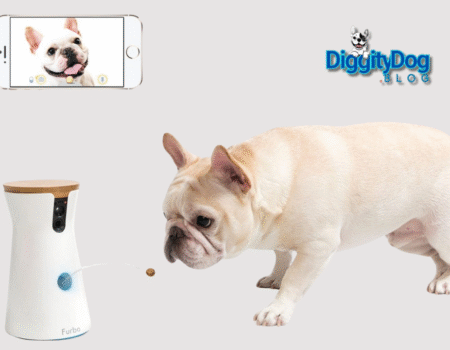When it comes to our furry friends, their health and well-being are always a top priority. We want to ensure they are getting the best nutrition possible, even when it comes to their treats. But with so many options on the market, it’s easy to wonder: are your dog treats really healthy?
Many brands claim their treats are “healthy,” “natural,” or “organic,” but what do these terms truly mean? Are they just buzzwords used to attract consumers, or do they hold any real value when it comes to our pets’ nutrition?
In this article, we’ll dive deep into the world of healthy dog treats and explore what makes them truly beneficial for your pup. From natural ingredients to homemade options, we’ll debunk common myths and reveal the truth about what makes a treat truly healthy.
Key Takeaways:
- Not all dog treats labeled as “healthy” or “natural” are actually good for your pup.
- Look for treats made with real, recognizable ingredients like fruits, vegetables, and lean proteins.
- Avoid treats with artificial additives, fillers, and excessive amounts of sugar or fat.
- Consider making homemade treats using wholesome ingredients to have full control over what goes into your dog’s snacks.
- Consult with your veterinarian to determine the best treat options for your dog’s specific dietary needs and preferences.
Apples as Healthy Dog Treats
When it comes to rewarding your furry friend with a nutritious and delicious snack, apples are a fantastic choice. Not only do dogs love the sweet and crisp taste of apples, but they also provide a range of essential nutrients and dietary fiber.
Apples are not only a delight for your dog’s taste buds, but they also offer a host of health benefits. This popular fruit is packed with vitamins such as vitamin A, vitamin C, and vitamin E, which contribute to your dog’s overall well-being. Additionally, apples are an excellent source of dietary fiber that supports healthy digestion and promotes a feeling of fullness.
However, it’s essential to remove the seeds and core of the apple before offering it to your pup. Apple seeds contain small amounts of cyanide, which can be harmful when consumed in large quantities. To ensure your dog’s safety, always slice the apple into bite-sized pieces and remove any seeds or core.
Incorporating apples into your dog’s treat rotation can be as simple as slicing them up and serving them fresh. You can also get creative by incorporating apples into homemade dog treat recipes or freezing them for a refreshing snack on hot days.
| Benefits of Apples as Dog Treats |
|---|
| 1. Rich in essential vitamins for overall health |
| 2. High in dietary fiber to support digestion |
| 3. Low in calories, making it a guilt-free snack option |
| 4. Fresh and hydrating for hot days |
| 5. Provides a satisfying crunch for your pup’s enjoyment |
Remember, while apples can be a healthy addition to your dog’s diet, they should always be offered in moderation. A few apple slices here and there can be a delightful supplement to their regular meals and other treats.
So the next time you want to spoil your canine companion with a tasty and beneficial treat, reach for a crisp apple! Your pup will thank you for the delectable snack and the added health benefits.
Green Peas as Healthy Dog Treats
Dogs enjoy a variety of treats, and green peas are a nutritious option that can be incorporated into their diet. Not only are green peas healthy, but they also make a delicious treat that most dogs love. Whether fresh or frozen, green peas provide several benefits for your furry friend.
Green peas are packed with essential vitamins, including vitamin A, vitamin C, and vitamin K. These vitamins contribute to your dog’s overall health and support their immune system. Additionally, green peas are a good source of fiber, promoting healthy digestion and preventing constipation. Fiber also helps to keep your dog feeling full without adding excess calories, making green peas an ideal choice for pups watching their waistlines.
| Benefits of Green Peas as Dog Treats |
|---|
| Rich in essential vitamins such as vitamin A, vitamin C, and vitamin K |
| Good source of fiber for digestive health |
| Low in calories, making them a great option for dogs on a diet |
| Provide a satisfying crunch that dogs enjoy |
Green peas also offer a satisfying crunch that dogs enjoy. The texture can help to clean your dog’s teeth, promoting dental health and reducing the risk of plaque build-up. However, it’s important to note that not all dogs may tolerate green peas well. Some dogs may experience digestive issues or allergies, so it’s crucial to introduce green peas gradually and monitor your dog for any adverse reactions.
Incorporating green peas into your dog’s diet is simple. You can steam or lightly cook green peas before serving them to your pup, or you can offer them frozen as a refreshing snack during warmer months. Just be sure to avoid seasoning the peas with any additives or seasonings that can be harmful to dogs.
Remember, while green peas are a healthy treat option for dogs, they should still be given in moderation. Treats should never exceed 10% of your dog’s daily caloric intake to ensure a balanced diet.
“Green peas are a nutritious and tasty treat for dogs. They provide essential vitamins and fiber, promoting overall health and digestion. Plus, they offer a satisfying crunch that dogs love!”
Carrots as Healthy Dog Treats
When it comes to healthy dog treats, carrots hold a special place. These vibrant orange vegetables are not only delicious but also packed with essential nutrients that can benefit your furry friend’s overall health. Carrots are rich in beta carotene, a precursor to vitamin A, which is essential for your dog’s vision, immune system, and skin health.
The beta carotene in carrots is converted into vitamin A, which plays a crucial role in maintaining healthy eyesight for dogs. Whether your pup is a young and active explorer or a wise senior, ensuring good eyesight is important for their safety and well-being.
In addition to beta carotene, carrots are also a good source of other vitamins, such as vitamin K, vitamin C, and vitamin B6. These vitamins contribute to various bodily functions, including blood clotting, collagen production, and energy metabolism.
When offering carrots as dog treats, it’s important to take precautions to prevent any potential choking hazards. Cut the carrots into small, bite-sized pieces that are appropriate for your dog’s size. This will make it easier for them to enjoy the treat without any risks.
Another way to incorporate carrots into your dog’s diet is through homemade treats. You can use carrots as an ingredient in recipes for biscuits, muffins, or even frozen treats. The versatility of carrots allows you to get creative and tailor the treats to your dog’s preferences.
The Benefits of Carrots as Dog Treats:
- Rich in beta carotene for healthy eyesight
- Good source of vitamins K, C, and B6 for various bodily functions
- Low in calories, making them a suitable option for dogs on a restricted diet
- Crunchy texture promotes dental health by helping to remove plaque and tartar buildup
So, the next time you’re looking for a nutritious and delicious treat for your dog, reach for some carrots. Whether served raw or incorporated into homemade treats, carrots provide a range of health benefits thanks to their beta carotene and vitamin content. Your furry friend will appreciate the tasty reward, and you’ll have peace of mind knowing you’re offering them a wholesome option.
Green Beans as Healthy Dog Treats
Dogs can also enjoy the benefits of green beans as a healthy and nutritious treat. Not only are green beans a tasty snack, but they also provide an array of vital nutrients and fiber for your canine companion. Including green beans in your dog’s diet can offer a range of health benefits, promoting overall well-being.
Green beans are an excellent source of greens, packed with essential vitamins and minerals that contribute to your dog’s vitality. They contain important nutrients such as vitamin K, vitamin C, vitamin A, and manganese, which support a healthy immune system, promote bone health, and aid in maintaining a shiny coat.
Moreover, green beans are rich in dietary fiber, which plays a crucial role in regulating digestion and promoting a healthy gut. Fiber helps to maintain regular bowel movements and can aid in controlling weight by promoting a feeling of fullness. It can also contribute to better colon health and lower the risk of certain gastrointestinal issues.
When incorporating green beans into your dog’s diet, it is essential to ensure they are plain and not seasoned. Avoid giving your dog green beans cooked with added salt, butter, or oil, as these additives may be harmful to their health. Instead, opt for fresh or frozen green beans that have been lightly steamed or blanched.
Whether you provide green beans as an occasional treat or mix them with your dog’s regular meals, they are a great addition to a well-rounded and nutritious diet. Just be sure to introduce green beans gradually, starting with small portions, and monitor your dog’s reaction to ensure they tolerate this treat well.
Benefit highlights of green beans as healthy dog treats:
- Packed with essential vitamins and minerals
- Good source of dietary fiber for digestive health
- Promote a healthy immune system
- Support bone health
- Aid in weight management
- Contribute to a shiny coat
| Nutrient | Amount per 100g of Green Beans |
|---|---|
| Calories | 31 kcal |
| Protein | 1.8 g |
| Fat | 0.2 g |
| Fiber | 2.7 g |
| Vitamin K | 43.7 mcg |
| Vitamin C | 12.2 mg |
| Vitamin A | 690 IU |
| Manganese | 0.2 mg |
Watermelon as Healthy Dog Treats
Watermelon is not only a refreshing and delicious fruit for humans, but it can also be a hydrating and beneficial snack for dogs. With its high water content and essential vitamins, watermelon is a healthy treat option for your furry friend.
Watermelon is made up of about 92% water, making it a perfect choice for hydrating your dog, especially during hot summer months. It can help keep your dog cool and prevent dehydration, which is essential for their overall well-being.
In addition to its hydrating properties, watermelon is a good source of vitamins A, B6, and C. These vitamins contribute to your dog’s immune system, skin health, and overall vitality.
Just like with any treat, it’s important to exercise portion control when giving watermelon to your dog. Too much of it can lead to an upset stomach or diarrhea due to its high fiber content.
When offering watermelon to your dog, it’s crucial to remove any seeds and not give them the rind. Watermelon seeds can cause gastrointestinal issues and may be a choking hazard. The rind, on the other hand, can be tough to digest and may cause stomach discomfort.
To make it easier for your dog to enjoy watermelon, consider cutting it into bite-sized pieces and removing both seeds and rind before offering it as a treat. Your dog will not only love the taste but also reap the hydrating and nutritional benefits of this juicy fruit.
Benefits of Watermelon for Dogs:
- Hydrating snack, especially during hot weather
- Rich in vitamins A, B6, and C
- Low in calories and fat
- Contains essential minerals like potassium and magnesium
As with any addition to your dog’s diet, it’s best to introduce watermelon gradually and monitor your dog’s reaction. If you notice any digestive issues or allergic reactions, discontinue feeding watermelon.
Cooked Sweet Potatoes as Healthy Dog Treats
Cooked sweet potatoes are a convenient and healthy option for dog treats. Not only are they delicious, but they also offer numerous health benefits. Sweet potatoes are packed with essential vitamins and minerals that can support your pup’s overall well-being.
When preparing cooked sweet potatoes for your furry friend, it’s important to keep them plain and not give dogs raw potatoes. Sweet potatoes can be roasted or boiled until they are soft and easily mashable. This ensures that they are safe and digestible for your dog.
| Nutritional Value of Cooked Sweet Potatoes | Amount per 100g |
|---|---|
| Calories | 86 |
| Carbohydrates | 20.1g |
| Fiber | 3g |
| Vitamin A | 283% of the Daily Value (DV) |
| Vitamin C | 3.2% of the DV |
| Potassium | 337mg |
As shown in the table above, cooked sweet potatoes are low in calories and high in fiber. The abundance of vitamin A makes them beneficial for your dog’s vision and immune system. Additionally, they provide a good source of potassium, which supports heart health and muscle function.
The Benefits of Cooked Sweet Potatoes for Dogs
1. Digestive Health: The high fiber content in sweet potatoes promotes healthy digestion and can alleviate constipation in dogs.
2. Vitamin-Rich: The vitamin A in sweet potatoes is essential for maintaining healthy skin, coat, and eyes in dogs.
3. Antioxidant Properties: Sweet potatoes contain antioxidants that can protect your dog’s cells from damage caused by free radicals.
4. Low-Fat Option: Cooked sweet potatoes are a low-fat alternative to traditional dog treats, making them suitable for dogs on a weight management plan.
Remember to introduce any new treats gradually and observe your dog for any signs of allergies or sensitivities. If you have any concerns about the suitability of cooked sweet potatoes for your dog, it’s best to consult with your veterinarian.
“My dog absolutely loves cooked sweet potatoes! It’s a nutritious and tasty treat that I can feel good about giving him.”-Pet Parent
Bananas as Healthy Dog Treats
Bananas are not only a delicious fruit for humans, but they can also make a healthy and tasty treat for dogs. These yellow wonders are packed with essential nutrients that can benefit your furry friend’s overall well-being. However, it’s important to keep moderation in mind when giving bananas to your dog due to their high sugar content.
Despite their sweet taste, bananas offer several health benefits for dogs. They are a great source of dietary fiber, which can aid in digestion and promote a healthy gut. Bananas also contain vitamins and minerals such as potassium, vitamin C, and vitamin B6, which support various bodily functions and contribute to overall health.
When giving bananas to your dog as a treat, it’s essential to follow a few guidelines:
- Choose ripe bananas that are not overly soft or mushy.
- Peel the banana and remove any visible strings before serving.
- Cut the banana into small, bite-sized pieces to prevent choking hazards.
- Introduce bananas gradually into your dog’s diet to observe any potential allergies or digestive issues.
Remember that while bananas can be a healthy addition to your dog’s diet, they should not replace their regular balanced meals. Treats, including bananas, should only make up a small portion of their overall calorie intake to maintain a healthy weight and prevent excessive sugar consumption.
Incorporating bananas into your dog’s treat repertoire can be as simple as giving them a small slice as a reward during training sessions or freezing mashed bananas for a cool and refreshing snack on hot days. Just make sure to adjust the portion size according to your dog’s size and individual dietary needs.
Keep in mind that some dogs may have specific dietary restrictions or medical conditions, so it’s always a good idea to consult with your veterinarian before introducing any new foods or treats into your dog’s diet.
By providing your dog with wholesome and nutritious treats like bananas, you can show them some extra love while contributing to their overall health and happiness.
Broccoli as Healthy Dog Treats
When it comes to healthy dog treats, broccoli is a fantastic option. This cruciferous vegetable offers numerous health benefits and can be a nutritious addition to your pup’s diet.
Broccoli is rich in vitamins, minerals, and fiber, making it an excellent choice for dogs. It contains essential nutrients like vitamin C, vitamin K, and folate, which support overall health and well-being.
Feeding your dog a few small pieces of raw, roasted, or steamed broccoli can provide them with a tasty and nutritious treat. Just make sure to serve it unseasoned to avoid any potential harm to your furry friend.
The Health Benefits of Broccoli
Broccoli is packed with nutrients that can contribute to your dog’s overall health. Here are some of the key health benefits:
- Rich in antioxidants: Broccoli contains antioxidants that help protect the body’s cells from damage caused by harmful free radicals.
- Gut health: The fiber in broccoli can support a healthy digestive system and promote regular bowel movements for your dog.
- Immune system support: The vitamins and minerals in broccoli can help strengthen your dog’s immune system, keeping them healthy and resilient.
It’s important to remember that while broccoli is generally safe for dogs, it should be given in moderation. Too much broccoli can cause digestive upset due to its high fiber content. Always consult with your veterinarian before introducing any new foods or treats into your dog’s diet.
Below is a table summarizing the nutritional content of broccoli:
| Nutrient | Amount per 1 cup (91 grams) |
|---|---|
| Calories | 31 |
| Protein | 2.6 grams |
| Fat | 0.4 grams |
| Carbohydrates | 6 grams |
| Fiber | 2.4 grams |
| Vitamin C | 81.2 milligrams |
| Vitamin K | 92.5 micrograms |
| Folate | 57.3 micrograms |
As with any new food, it’s essential to introduce broccoli gradually and monitor your dog for any adverse reactions. If they experience any digestive issues or allergies, discontinue feeding them broccoli and consult your veterinarian.
Remember, moderation is key when it comes to treating your dog with broccoli. A few small pieces can provide them with a delicious and nutritious snack that supports their overall health. Enjoy sharing this cruciferous veggie with your furry companion!
Conclusion
Treats made from natural ingredients are the perfect choice for providing your dog with healthy and nutritious options. Fruits, vegetables, and other wholesome ingredients can be transformed into delicious and beneficial snacks for your furry friend. By incorporating these healthy dog treats into their diet, you can contribute to their overall health and well-being.
When it comes to choosing the right treats, it’s important to consider your dog’s dietary needs and preferences. Opt for treats that are specifically tailored to their nutritional requirements, ensuring that they are made with natural ingredients and free from any harmful additives or fillers. Look for dog snacks that are packed with essential vitamins, minerals, and antioxidants to support their immune system and boost their overall vitality.
Avoid treats that contain artificial flavors, colors, or preservatives, as these can have negative effects on your dog’s health in the long run. Instead, opt for healthy dog treats that are sourced from reputable brands known for their commitment to using only high-quality natural ingredients. Not only will these treats provide your dog with the nutrients they need, but they’ll also satisfy their taste buds and leave them wagging their tails in delight.
Remember, treats should always be given in moderation and as part of a balanced diet. While healthy dog treats offer numerous benefits, it’s essential to ensure that they complement your dog’s regular meals rather than substitute them. By offering these nutritious snacks, you can create a stronger bond with your pet, promote positive behavior, and contribute to their overall happiness and well-being.
FAQ
Can dogs eat apples?
Yes, apples are a nutritious dog treat that is full of nutrients and fiber. However, make sure to remove the seeds and core before giving them to your pup.
Are green peas a healthy dog treat?
Absolutely! Green peas are a healthy and natural dog treat that can be given to dogs fresh or frozen. They are a good source of vitamins and most dogs love them.
Are carrots a good choice for healthy dog treats?
Yes, carrots are loaded with beta carotene and other vitamins, making them a great choice for healthy dog treats. Just remember to cut them into bite-sized pieces and ensure they are an appropriate size for your dog to prevent choking.
Can dogs eat green beans?
Definitely! Dogs can eat green beans as a healthy treat. They are a great source of greens and fiber. Just make sure they are plain and not seasoned.
Is watermelon a suitable snack for dogs?
Yes, watermelon is a tasty, hydrating, and beneficial snack for dogs, just like for humans. However, remove any seeds and do not give the rind to dogs.
Can dogs have cooked sweet potatoes?
Cooked sweet potatoes are a convenient and healthy dog treat. You can roast them and keep them in the refrigerator to share with your furry family member. Remember to keep them plain and not give dogs raw potatoes.
Are bananas a good choice for dogs?
Yes, bananas are loaded with healthy nutrients and most dogs love them. However, due to their high sugar content, it’s best to give bananas to dogs in moderation.
Is broccoli a suitable choice for healthy dog treats?
Absolutely! Broccoli is a cruciferous vegetable with well-known health benefits. Dogs can have a few small pieces of raw, roasted, or steamed broccoli, just unseasoned.
Can I give my dog homemade treats made from natural ingredients?
Yes, treats made from natural ingredients are a great choice for providing healthy and nutritious options for your dog. Fruits, vegetables, and other wholesome ingredients can make delicious and beneficial snacks for your furry friend. Just make sure to choose treats that meet your dog’s dietary needs and preferences while avoiding any toxic foods.
How do healthy dog treats contribute to a dog’s overall health and well-being?
By incorporating healthy dog treats into their diet, you can contribute to your dog’s overall health and well-being. These treats provide essential nutrients, promote dental health, and can help prevent obesity and other health issues. It’s important to choose treats that align with your dog’s specific dietary needs and consult with a veterinarian if you have any concerns.










No Comment! Be the first one.